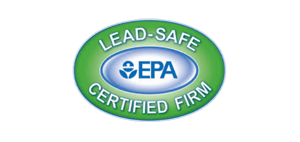Mold is a common problem in many households, and exposure to mold can lead to various health issues. Mold poisoning, in particular, can have serious consequences if not addressed promptly. Therefore, it’s crucial to be aware of the warning signs of mold poisoning. By familiarizing yourself with these symptoms, you can take the necessary steps to safeguard your health and well-being.
Key Takeaways
- Mold exposure can lead to various health issues.
- Mold poisoning can have serious consequences if left untreated.
- It’s important to recognize the signs and symptoms of mold poisoning.
- By understanding these symptoms, you can take necessary precautions to protect your health.
- Stay informed and prioritize your health to mitigate the potential serious effects of mold exposure.
Understanding Mold Poisoning
If you’ve been exposed to mold, it’s essential to understand the potential health risks associated with mold poisoning. Mold poisoning occurs when you inhale or ingest mold spores that release toxins into your body. These toxins can lead to various health issues, ranging from mild to severe.
Exposure to mold can occur in many ways, such as through breathing in spores from the air or through contact with mold-contaminated surfaces. Once these spores enter your body, they can trigger an immune response, leading to inflammation and other symptoms.
Mold poisoning can affect anyone, but some people, such as those with weakened immune systems or preexisting respiratory issues, may be more susceptible to its effects. It’s crucial to understand the basics of mold poisoning to recognize the signs and take appropriate action.
Common Symptoms of Mold Poisoning
Mold exposure can lead to a variety of health issues, and it’s essential to recognize the warning signs. Here are some of the most common symptoms associated with mold poisoning:
- Respiratory problems: Mold in the air can irritate your respiratory system, leading to coughing, wheezing, and difficulty breathing. If you notice these symptoms worsening while indoors, mold exposure may be a potential cause.
- Skin irritation: Mold exposure can cause skin rashes and itching. If you notice red, itchy patches on your skin, they may be related to mold exposure.
- Eye irritation: Mold exposure can also cause eye irritation, such as redness and watering. If your eyes feel irritated in a particular location, mold may be present.
- Headaches: Mold exposure can lead to headaches, especially if you spend a lot of time in a location with mold. If you notice an increase in headaches, mold exposure may be a potential cause.
- Memory problems: Exposure to mold can also affect your memory and concentration. If you find it difficult to recall things or concentrate on tasks, mold exposure may be a potential cause.
If you experience any of these symptoms, it’s essential to take appropriate action. Contact a medical professional if you notice any of these symptoms persisting or worsening over time. Additionally, it’s crucial to address any mold issues in your home or workplace to prevent further exposure.
Respiratory Symptoms of Mold Poisoning
Respiratory symptoms are among the most common signs of mold poisoning. If you’re experiencing respiratory problems, it’s essential to determine whether mold exposure could be the cause.
Some of the most typical respiratory symptoms of mold poisoning include:
- Coughing
- Wheezing
- Shortness of breath
- Chest tightness or discomfort
These symptoms can be particularly concerning for individuals with underlying respiratory conditions, such as asthma. If you experience these symptoms, seek medical attention immediately.
In some cases, mold exposure can also lead to more severe respiratory symptoms. These may include:
- Difficulty breathing
- Bleeding from the lungs
- Pulmonary hemorrhage
If you experience any of these more severe symptoms, seek emergency medical attention right away.
| Respiratory Symptoms of Mold Poisoning | Severity |
|---|---|
| Coughing | Mild |
| Wheezing | Mild to moderate |
| Shortness of breath | Mild to moderate |
| Chest tightness or discomfort | Mild to moderate |
| Difficulty breathing | Severe |
| Bleeding from the lungs | Severe |
| Pulmonary hemorrhage | Severe |
As shown by the table, the severity of respiratory symptoms can vary significantly. It’s crucial to seek medical attention if you experience any respiratory symptoms related to mold exposure.
Remember: Respiratory symptoms are some of the most common signs of mold poisoning. If you experience any of these symptoms, seek medical attention to determine the cause and take appropriate action.
Skin and Eye Symptoms of Mold Poisoning
If you’ve been exposed to mold, you may experience symptoms related to your eyes and skin. These symptoms can range from mild irritation to more serious conditions. It’s important to be aware of them and seek medical attention if necessary. Here are some of the most common skin and eye symptoms associated with mold poisoning:
| Symptom | Description |
|---|---|
| Itching and redness | Mold spores can irritate the skin, causing itchy and red patches. |
| Rashes | Skin rashes may indicate an allergic reaction to mold exposure. These rashes can be itchy, scaly, or blistered. |
| Eye irritation | Mold spores can also irritate the eyes, causing redness, itching, and watering. |
If you experience any of these symptoms after being exposed to mold, it’s important to seek medical attention. A doctor can help you determine the cause and provide appropriate treatment. In some cases, these symptoms may be an indication of a more serious allergic reaction, so it’s important not to ignore them.
One way to prevent skin and eye symptoms from mold exposure is to limit your exposure to mold. If you know you’ll be in an area where mold is present, wear protective clothing and a mask to reduce your risk of exposure. Additionally, regular cleaning and maintenance can help prevent mold growth in your home or workplace.
If you’re concerned about mold in your home or workplace, consider consulting with a professional mold remediation service. These experts can identify the source of mold growth and help you safely remove it from your environment.
By being aware of the skin and eye symptoms associated with mold poisoning, you can take necessary steps to protect yourself and your loved ones from potential health issues. Stay vigilant and prioritize your well-being.
Neurological Symptoms of Mold Poisoning
While respiratory and skin symptoms are the most common signs of mold poisoning, it can also lead to neurological issues. If you experience any of the following symptoms, it may be worth investigating if mold exposure is the cause.
- Headaches
- Memory problems
- Dizziness
- Difficulty concentrating
These symptoms may occur due to the mycotoxins produced by certain types of mold. Mycotoxins can affect the nervous system and lead to neurological symptoms.
It’s worth noting that not all individuals exposed to mold will experience neurological symptoms. It may depend on various factors such as the type of mold, the duration of exposure, and the individual’s sensitivities.
If you experience any of these symptoms, it’s essential to seek medical advice. Your doctor may recommend diagnostic tests or refer you to a specialist for further evaluation.
Other Potential Signs of Mold Poisoning
While respiratory, skin, eye, and neurological symptoms are the most common signs of mold poisoning, there are other potential indicators that you should also be aware of. These include:
- Fatigue: If you’re feeling more tired than usual, it may be a sign of mold exposure.
- Muscle pain: Mold exposure may cause muscle aches and pains, as well as joint discomfort.
- Gastrointestinal problems: Mold exposure may lead to digestive issues such as nausea, diarrhea, and stomach cramps.
It’s essential to remember that not everyone who’s exposed to mold will experience the same symptoms. Some people may have mild reactions, while others may have severe health issues. If you’re experiencing any of these symptoms, it’s best to seek medical attention to determine if mold exposure is the cause.
Conclusion
Congratulations on taking the time to learn about the signs of mold poisoning! By understanding the symptoms associated with mold exposure, you can take appropriate action to safeguard your health.
Remember that mold poisoning can lead to various health issues, including respiratory problems, skin and eye symptoms, neurological symptoms, and other potential signs. If you suspect that you may have been affected by mold exposure, it’s crucial to seek medical attention promptly.
By following preventive measures such as controlling humidity levels in your home, fixing leaks and water damage promptly, and ensuring proper ventilation, you can minimize the risk of mold growth and keep your home and workplace safe.
Stay informed and prioritize your health by being aware of the warning signs of mold poisoning.
Thank you for reading!
FAQ
What are the signs of mold poisoning?
Signs of mold poisoning can vary, but common symptoms include respiratory issues, skin problems, and neurological symptoms. It’s important to be aware of these signs and seek medical attention if you suspect mold exposure.
What is mold poisoning?
Mold poisoning, also known as mold toxicity, occurs when a person is exposed to high levels of mold spores. This exposure can lead to various health problems, including allergic reactions, respiratory issues, and neurological symptoms.
What are the most common symptoms of mold poisoning?
The most common symptoms of mold poisoning include coughing, wheezing, skin rashes, eye irritation, headaches, memory problems, and fatigue. These symptoms can vary in severity depending on the individual and the level of mold exposure.
What are the respiratory symptoms of mold poisoning?
Respiratory symptoms of mold poisoning may include coughing, wheezing, shortness of breath, and sinus congestion. These symptoms can be particularly prevalent in individuals with pre-existing respiratory conditions or weakened immune systems.
What are the skin and eye symptoms of mold poisoning?
Skin and eye symptoms of mold poisoning can include skin rashes, itching, redness, eye irritation, and watery eyes. These symptoms may occur when mold spores come into direct contact with the skin or eyes.
What are the neurological symptoms of mold poisoning?
Neurological symptoms of mold poisoning may manifest as headaches, memory problems, difficulty concentrating, dizziness, and confusion. These symptoms can indicate the presence of mold toxins affecting the central nervous system.
Are there any other potential signs of mold poisoning?
Yes, in addition to the common symptoms, mold poisoning can also cause fatigue, muscle pain, joint pain, gastrointestinal problems, and sensitivity to light and sound. These less common symptoms should not be ignored and may warrant further investigation.



